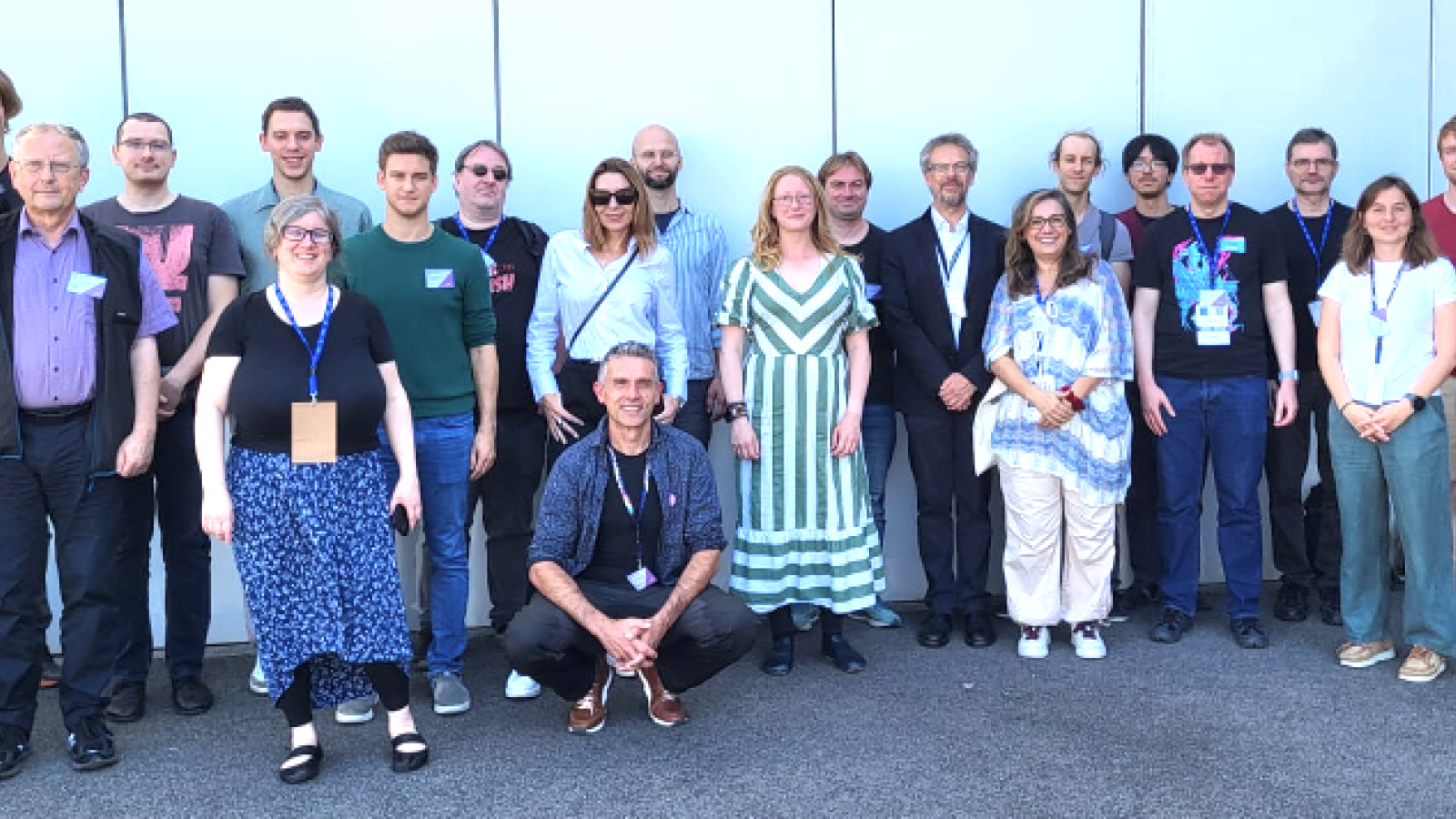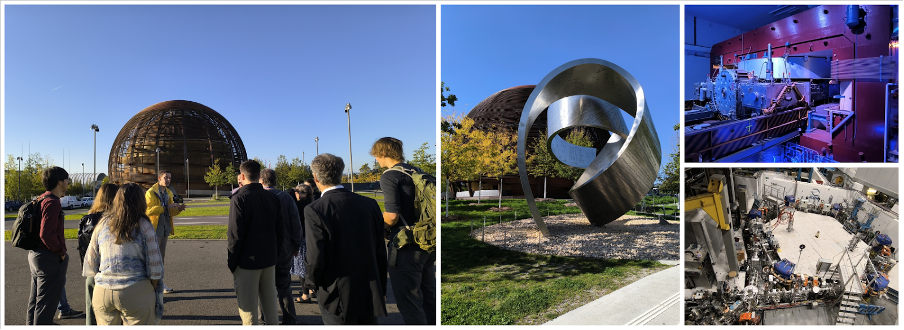
We are thrilled to share with you the successful culmination of our recent internal and international Composability and Authentication and Authorisation Infrastructure (AAI) workshop held on 17-19 September 2025 at CERN focusing on two key areas: reviewing the progress of composability development and deployment in the OSCARS project and exploring potential collaboration with the AARC TREE project with respect to Authentication and Authorisation Infrastructure. This workshop was particularly significant as it allowed us to delve into the shared challenges faced by research infrastructures and brainstorm potential solutions. In OSCARS, we believe in the power of collective intelligence and the transformative potential of hands-on learning.
Workshop Objectives and Outcomes
The workshop was held as a satellite event of the Open Science Fair and in conjunction with the project meetings of OSCARS WP2 (Composable Research Infrastructure Services in EOSC) and the AARC-TREE project. This combination resulted in more than 60 registered participants, half of which could attend in person. The synergy with the AARC-TREE project provided valuable insights for the OSCARS project, particularly in the realm of Authentication and Authorisation Infrastructure. Conversely, it also offered the AARC-TREE project a clearer understanding of community needs.
The workshop began with a comprehensive review of our progress in composability development and deployment. Within OSCARS, composability refers to the ability to combine and integrate smaller, modular components or services into more complex systems. In a composable system, each component is designed to function independently but can be easily assembled or reconfigured with others to create new workflows or applications. The workshop focused on evaluating the improvements made to the services and ensuring they align with the Clusters' vision of composability.
We then took a deep dive into the EOSC nodes, focusing on the Federation's build-up and the distinct roles of the EU and CERN nodes. We reviewed key timelines, including the October 2024 node launch, the governance roadmap until 2027, and the publication of the EOSC federation handbook. A central point of discussion was the challenge of integrating services like AAI and catalogues, highlighting the contrast between the EU node's strict Service Level Agreements and the more flexible nature of Research Infrastructures. The presentation of the candidate CERN EOSC node highlighted the sharing of experience and lessons learned, including the importance of AAI and the potential for federated data management and storage solutions. The discussion also touched on the role of credits and the need for a more flexible access policy vocabulary.
We continued the workshop with the discussion of "Resource discovery: Challenges and Solutions". We realised that maturity differs significantly within and across the clusters. While climate research data remains highly fragmented, LifeWatch showcased an advanced federated search with API and LLMs integration. We also examined CLARIN's infrastructure for promoting interoperability in computational linguistics. The discussion consistently returned to the need for standardised metadata and harmonised policies, with a clear consensus on the potential of semantic web technologies and knowledge graphs.
Further, we discussed the architecture and capabilities of various workflow management systems, including Galaxy, REANA, EWOKS, and DIRAC, focusing on their core design philosophies, user experience, execution environments, data management and integration, reproducibility, and sharing mechanisms. Key points included the use of tools like snakemake for interoperability, the need for data provenance and versioning, and the challenges of integrating different storage systems and tools. The discussion also touched on the importance of reproducibility and FAIR principles, as well as the ongoing development and implementation of open standards like CWL.
The highlight of the workshop were the tours to various experimental sites at CERN, including the Synchro-Cyclotron, the Antimatter Factory, and the ATLAS experiment. We appreciated the insightful and detailed explanations of cutting-edge research. Thank you for the enriching experience!

As a conclusion of the workshop, each cluster defined some upcoming steps and takeaway messages. In general, all clusters aim to improve compatibility across different Research Infrastructures (RIs) by sharing workflows and tools. This collaborative approach helps in addressing data fragmentation and semantic harmonisation, ensuring that data is accessible and meaningful across disciplines. The use of common platforms such as Galaxy, Zenodo, and Virtual Research Environments (VREs) is promoted to streamline data management and analysis.
To achieve these common goals, several steps were outlined:
- Semantic Harmonisation: Implementing ontologies and FAIR vocabularies is crucial to reduce data fragmentation and enhance interoperability.
- Workflow Development: Collaborating on the development of reusable and platform-independent workflow components creates bridges between communities and fosters cooperation.
- Tool Integration: Promoting the integration of tools across different clusters and communities ensuring that methods and services are widely accessible and usable.
- Competence Centres: Proposing and developing inter-cluster Competence Centres is necessary to address shared challenges and enhance collaborative capabilities.
- Training and Documentation: Providing extensive documentation and training for VRE workflows and analyses is necessary to ensure that researchers can effectively use these platforms.
- Platform Integration: Enabling VREs integration with heterogeneous computing resources (e.g. clouds, HPCs), and the development of common VRE Helm Charts, are crucial objectives to optimise and standardise deployments.
By focusing on these commonalities, the clusters can advance their goals and enhance the overall research environment, leading to more efficient and effective data management and analysis across disciplines.
Looking Ahead
The workshop culminated with an in-depth discussion on the upcoming tasks, particularly focusing on the initial concepts for our community engagement activities.This segment was instrumental in fostering creativity and soliciting diverse perspectives on how to effectively engage with the community, promote our work, and ensure practical application of our tools. We unanimously agreed to continue and enhance our community outreach efforts by participating in cluster-specific conferences and workshops, ensuring alignment with the visions of the Competence Centres and Work Packages 1 and 3.